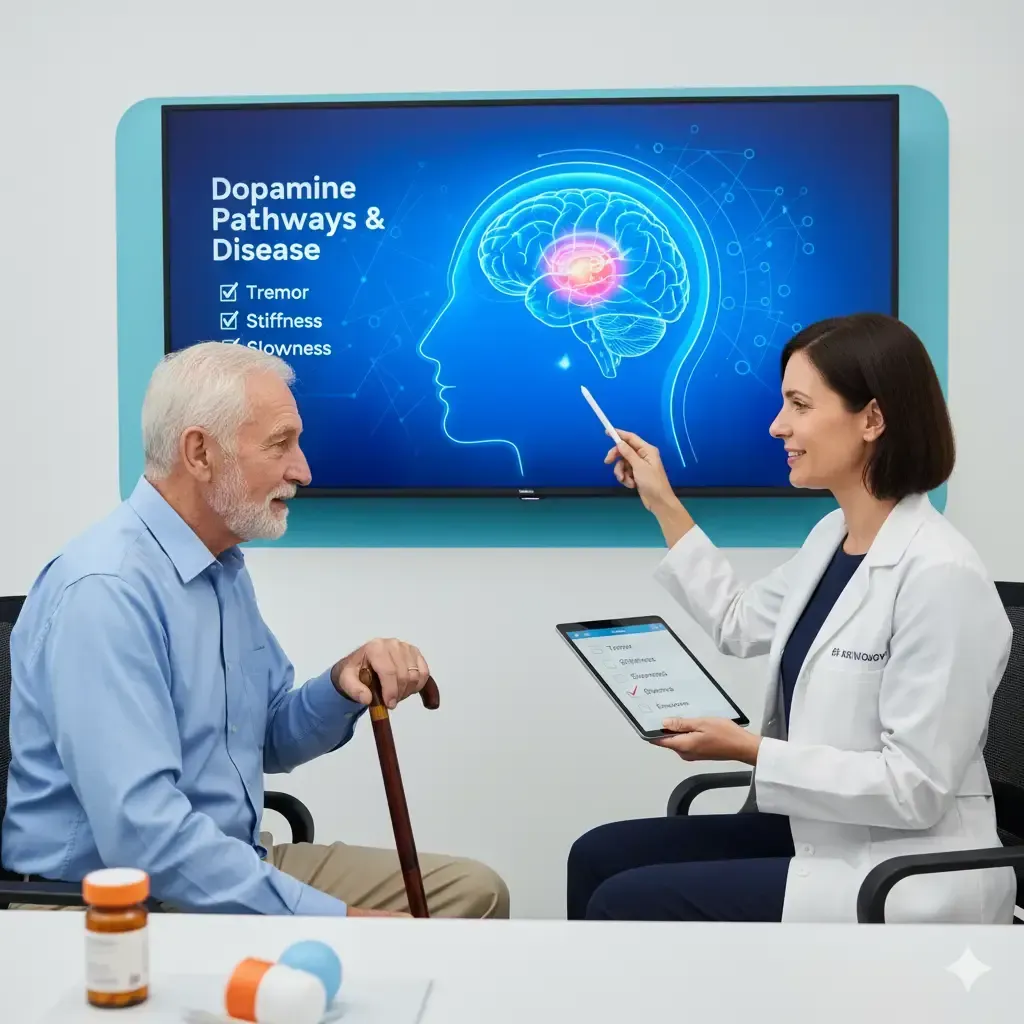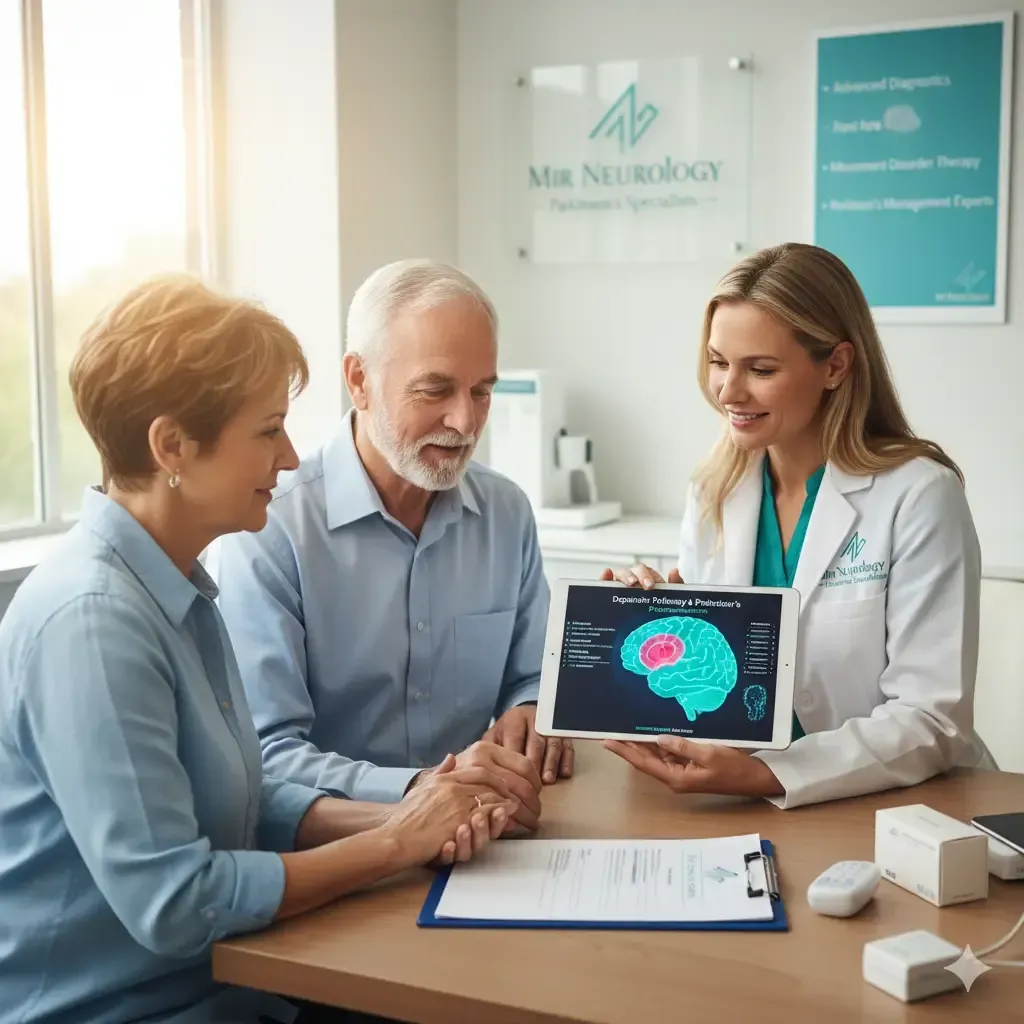The Role of Nutrition in Managing Parkinson's Disease
Understanding Parkinson’s Disease
Parkinson’s disease is a progressive neurological disorder that affects movement, coordination, and overall quality of life. It develops when nerve cells in the brain that produce dopamine become impaired or die, leading to tremors, stiffness, and slowed movement.
At Mir Neurology, with offices in Hagerstown, MD, and Cumberland, MD, we provide comprehensive care that includes guidance on how nutrition for Parkinson’s disease may improve daily living.
Why Nutrition Matters in Parkinson’s Disease
Proper diet cannot stop Parkinson’s progression, but it may:
Improve energy levels and overall well-being.
Support brain health and delay worsening symptoms.
Enhance the effectiveness of medications like levodopa.
Reduce constipation, a common non-motor symptom.
Maintain muscle and bone strength for mobility.
Nutrition in Parkinson’s disease is about managing both motor and non-motor symptoms with practical lifestyle adjustments. Nutrition in Parkinson’s disease is about managing both motor and non-motor symptoms with practical lifestyle adjustments. It focuses on maintaining a healthy weight, preventing constipation, and timing protein intake around medication to maximize the drug's effectiveness and improve overall quality of life.


Key Nutritional Considerations
1. Balanced Diet
A well-rounded diet rich in fruits, vegetables, whole grains, lean proteins, and healthy fats provides the body with essential nutrients for brain health and mobility.
2. Protein and Medication Interaction
For patients taking levodopa, protein can interfere with absorption. Spacing out high-protein meals away from medication times may improve treatment effectiveness.
3. Fiber and Hydration
Constipation is one of the most common non-motor symptoms of Parkinson’s disease. Increasing fiber intake (fruits, vegetables, legumes) and drinking enough water can relieve discomfort.
4. Antioxidants for Brain Health
Foods high in antioxidants (berries, leafy greens, nuts, seeds) may protect nerve cells from oxidative stress, which is thought to contribute to Parkinson’s progression.
5. Omega-3 Fatty Acids
Omega-3s found in salmon, walnuts, and flaxseeds support brain function and may improve mood in Parkinson’s patients.
6. Vitamin D and Calcium
People with Parkinson’s are at higher risk for falls and fractures. Adequate Vitamin D and calcium intake supports bone strength and reduces fall-related complications.
Nutrition Challenges in Parkinson’s
Many individuals face additional challenges such as:
Difficulty chewing and swallowing → Softer foods and thickened liquids may help.
Weight loss due to increased energy expenditure from tremors.
Taste changes that reduce appetite.
Fatigue that interferes with meal preparation.
Our neurologists in Hagerstown and Cumberland, MD, help patients and caregivers create meal plans that address these unique needs, ensuring optimal medication absorption, managing weight fluctuations, and offering strategies for issues like swallowing difficulties and dry mouth.
Complementary Role of Nutrition with Other Therapies
Nutrition works alongside:
Medication management to reduce motor symptoms.
Physical therapy to maintain strength and mobility.
Occupational therapy for independence in daily life.
Speech therapy to address swallowing difficulties.
By integrating dietary strategies, patients gain more control over their health.


Why Choose Mir Neurology for Parkinson’s Care?
If you’re searching for a neurologist for Parkinson’s in Hagerstown, MD or a Parkinson’s specialist in Cumberland, MD, Mir Neurology offers a patient-centered approach with advanced diagnostics, cutting-edge treatment options, and a dedicated focus on your quality of life and long-term management.
Accurate diagnosis and testing for Parkinson’s disease.
Individualized treatment plans, including dietary guidance.
Coordination with dietitians, therapists, and rehabilitation experts.
Ongoing support for patients and families.
With over a decade of experience, our team ensures compassionate, comprehensive care for those living with Parkinson’s disease in Maryland. We specialize in creating personalized care plans that address the unique challenges of PD, focusing on enhancing mobility, improving daily function, and providing essential emotional support for both patients and their families throughout their journey.
Get Expert Help

If you or a loved one is experiencing memory loss or cognitive decline, early diagnosis is key to effective management. Consult with our neurology specialists for personalized assessment and care plans.
Our Locations
FAQs About Nutrition and Parkinson’s Disease
1. Can diet slow the progression of Parkinson’s disease?
Diet cannot cure or stop progression, but a balanced diet rich in antioxidants and omega-3s may help manage symptoms and improve quality of life.
2. What foods should be avoided with Parkinson’s disease?
High-protein meals can reduce levodopa absorption if taken together. Patients should also limit processed foods, excessive sugar, and saturated fats.
3. Is constipation common in Parkinson’s, and can diet help?
Yes, constipation is a frequent non-motor symptom. Increasing fiber, hydration, and regular physical activity can significantly improve bowel health.
4. Should people with Parkinson’s take supplements?
In some cases, Vitamin D, calcium, or omega-3 supplements may be recommended. Always consult a Parkinson’s specialist before starting supplements.
5. Where can I find expert Parkinson’s care in Maryland?
Mir Neurology offers specialized Parkinson’s disease treatment in Hagerstown and Cumberland, MD, including diagnosis, therapy, and nutritional guidance.
To learn more about our experience or discuss your treatment options, please call us at (301) 797-7600 or schedule a consultation today!
Get our wellness newsletter
Filter out the noise and nurture your inbox with health and wellness advice that’s inclusive and rooted in medical expertise.
Contact Us
Complaint and Queries
(301) 517-7636
About | Careers
© Copyright 2026. Mir Neurology. All Rights Reserved.
A Part of Highland Healthy Living. Powered By CareSyncMarketing



